50 Great Movies That Should've Been Terrible
Perilous pitches that came good
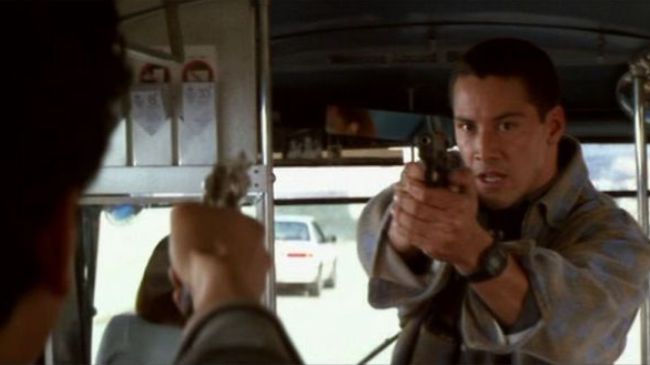
Speed (1994)
Why It Should've Been Terrible: As Homer Simpson put it, it's "a movie about a bus that had to speed around the city, keeping its speed over fifty, and if its speed dropped, the bus would explode! I think it was called The Bus That Couldn't Slow Down ."
How It Became Great Instead: Sometimes, all it needs is for everybody to accept that a film is just like a bus-with-a-bomb; the trick is to maintain the momentum or everybody gets wise to how ludicrous the (sky-)high concept is.
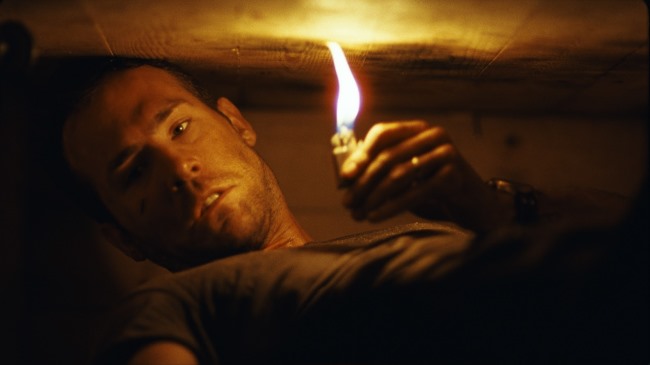
Buried (2010)
Why It Should've Been Terrible: An entire film shot from inside a coffin? Not even Alfred Hitchcock had the cojones to try that one.
How It Became Great Instead: If you want cojones, find a guy who speaks the language. Spaniard Rodrigo Cortés, assisted by a screenplay that had legitimate reasons for never venturing beyond the box, found angles to shoot the (in)action that Hitch would have been proud of.
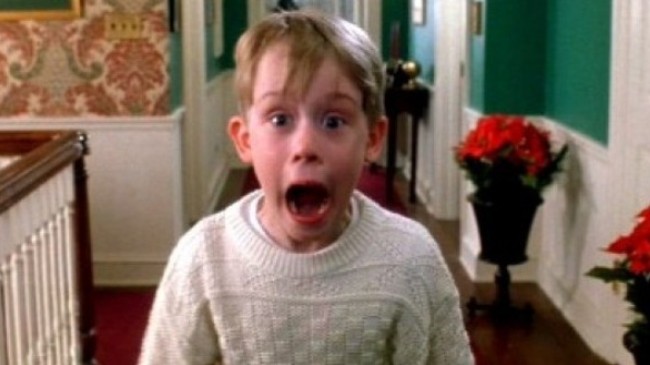
Home Alone (1990)
Why It Should've Been Terrible: Hollywood hits a new low in irresponsibility as parental neglect is played for laughs. But if this happened in real life, it'd be a different story.
How It Became Great Instead: Screenwriter John Hughes went out of his way to make sure the kid was resourceful enough to look after himself. And by resourceful, we mean he's a pint-sized sadist on a mission to single-handedly drag the spirit of Looney Tunes into live-action.
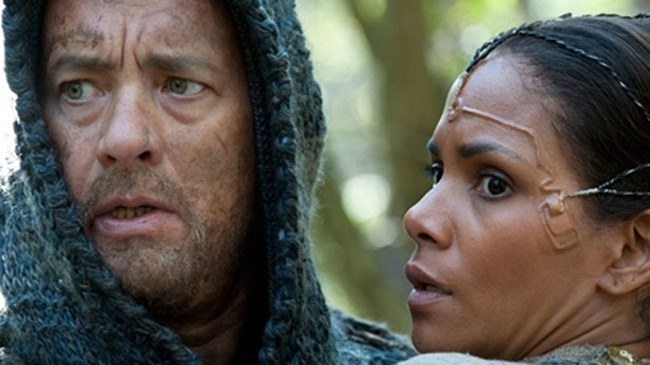
Cloud Atlas (2012)
Why It Should've Been Terrible: Have you read the novel? David Mitchell's epic offers a surely-impossible-to-film six stories that span history from the 19th century to a post-apocalyptic future. A mini-series, maybe, but not a feature film. And what's with this crazy notion of Tom Tykwer and the Wachowskis sharing megaphone duties?
How It Became Great Instead: The tag-team approach ensured that each 'chapter' retained a distinctive tone, but the directors' biggest gamble - re-editing the six into one long, three-hour montage - provided a blast of pure cinema that justified adapting this as a film.
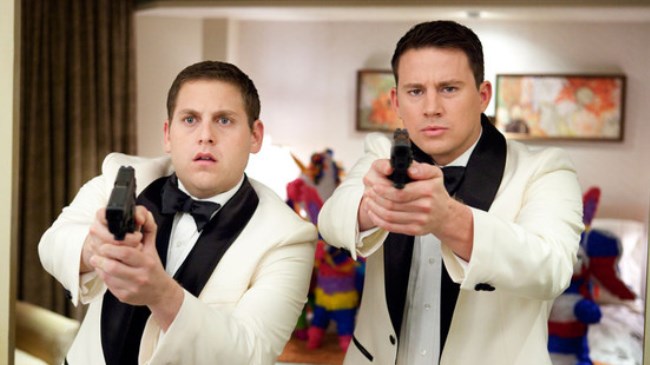
21 Jump Street (2012)
Why It Should've Been Terrible: Talk about hitting rock bottom when it comes to remakes. The original TV series is remembered only for giving Johnny Depp his breakthrough; what chance does this have with an unlikely pairing of Channing Tatum and Jonah Hill, and two directors who have never handled a live-action film?
How It Became Great Instead: Put your trust in the Lord (and Miller). Wryly self-aware about its source material, the film piles on surreal set-pieces to create the funniest action movie in years and a breakout comic performance from Tatum.
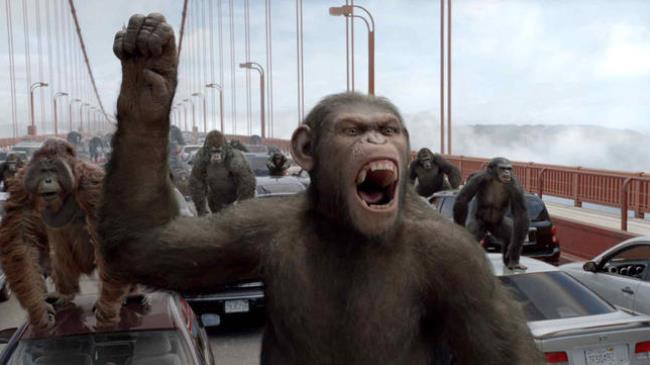
Rise Of The Planet Of The Apes (2011)
Why It Should've Been Terrible: Only a chimp would want to resurrect this franchise after Tim Burton's fatal re-imagining.
How It Became Great Instead: Like Batman Begins before it, a studio gambled on a Brit with little Hollywood exposure - and Rupert Wyatt repaid the gesture with a smart, relevant and exciting sci-fi thriller that leaves the door open for future Ape -pisodes.
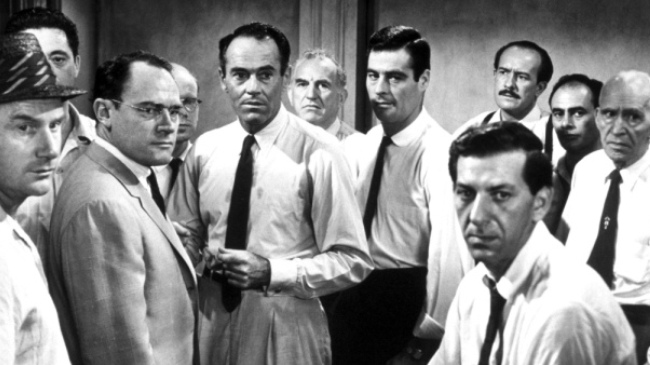
12 Angry Men (1957)
Why It Should've Been Terrible: It's a dozen guys all stuck in a room and shouting to be heard. If we wanted to watch that, we'd volunteer for jury duty.
How It Became Great Instead: Proof that cinema needn't always think big, this is a perfect example of micro-management in which detail matters and all twelve actors get their moment to shine.
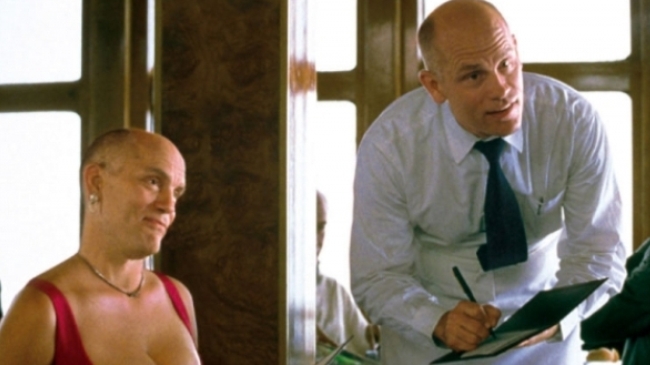
Being John Malkovich (1999)
Why It Should've Been Terrible: Puppeteers, portals, John Malkovich's head. WHAT THE FUCK?
How It Became Great Instead: Kaufman and Jonze's mind-scrambling odyssey into a movie star's head was just what American cinema needed - a genuinely original and surreal movie made with zero regard for focus groups or demographics.
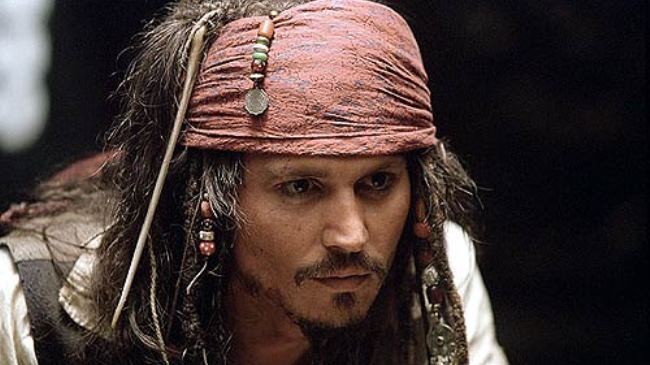
Pirates Of The Caribbean: The Curse Of The Black Pearl (2003)
Why It Should've Been Terrible: A film based on a theme park ride? Talk about scraping the barrel of rum. Yo-ho-hum.
How It Became Great Instead: Admit it, summer blockbusters *are* theme park rides. Only better, thanks to the ability to inject a witty script and a star in Johnny Depp who realises that his moment is NOW.
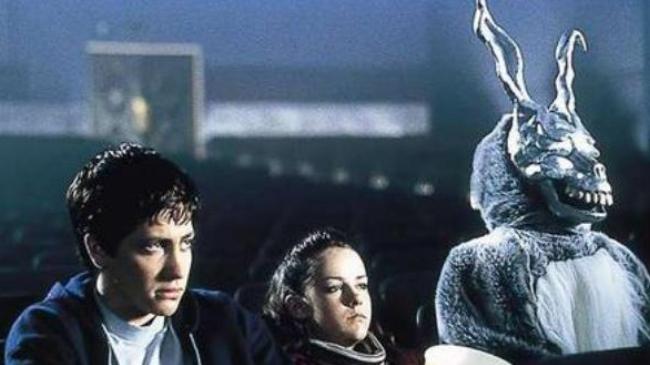
Donnie Darko (2001)
Why It Should've Been Terrible: Many script readers would have got as far as the moment when a scary man-sized rabbit saves Donnie from being squashed by a falling jet engine, and then binned Richard Kelly's screenplay.
How It Became Great Instead: Somebody read it to the end, and realised the unique fusion of sci-fi, romance, comedy and 1980s nostalgia that propelled Kelly's debut feature to the status of instant cult classic.
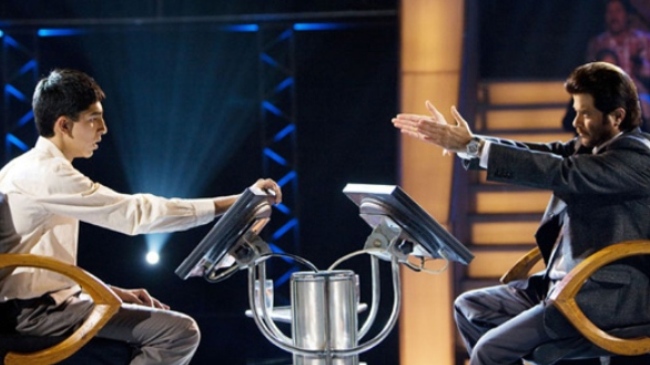
Slumdog Millionaire (2008)
Why It Should've Been Terrible: Surely, this is going to be 50% misery porn, 50% advert for Who Wants To Be A Millionaire?
How It Became Great Instead: Danny Boyle's energetic direction bounced along the highs and lows of Simon Beaufoy's screenplay, managing to deliver a feelgood rush without stinting on the bleaker aspects of the story.
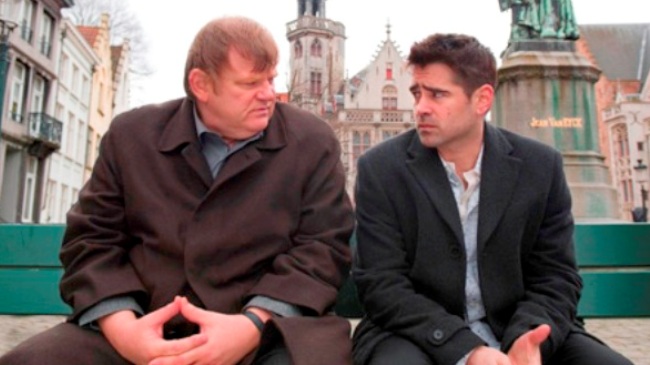
In Bruges (2008)
Why It Should've Been Terrible: Yet another hitman comedy-thriller. It's going to take more than a picturesque Belgian setting and an Irish cast to freshen up a tired genre.
How It Became Great Instead: As Martin McDonagh's inspiration Quentin Tarantino once remarked, "personality goes a long way." And with actors as charismatic as Colin Farrell and Brendan Gleeson, McDonagh's Pinter-with-added-profanity dialogue leapt from the page.
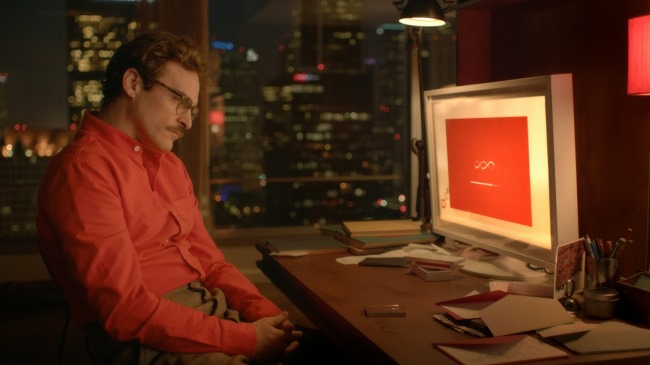
Her (2013)
Why It Should've Been Terrible: What kind of guy dates his computer? Seriously, if you think Siri is sexy, you need to get out more.
How It Became Great Instead: Without a floppy disc or hard drive in sight, Spike Jonze ignored the obvious jokes and played this as a genuine love story. And somewhat worryingly, he might be onto something. Be honest - the first thing you did when you left the cinema was to fondle your iPhone.
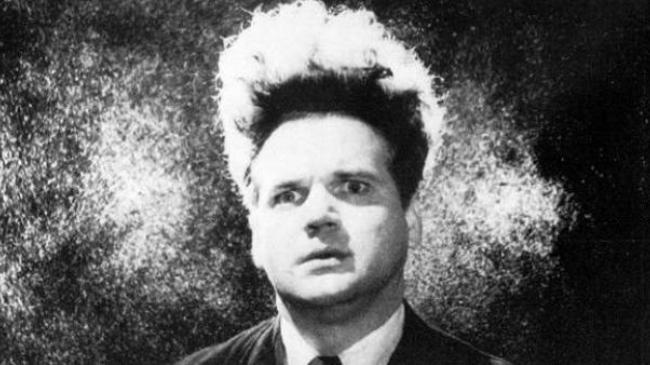
Eraserhead (1975)
Why It Should've Been Terrible: When the scene that gives the film its title - a dream sequence in which a man literally has the head of an eraser - is the nearest thing to normality, surely we've got problems.
How It Became Great Instead: Lynch's single-mindedness meant that, no matter how strange things got, the results were clearly the work of a genuine artist. Call it purity of vision, or just an uncommon ability to freak people out.
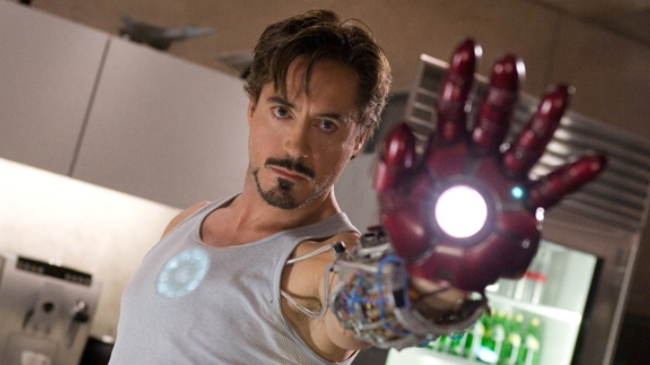
Iron Man (2008)
Why It Should've Been Terrible: A fella whose only superpower is that he's rich enough to make himself a suit. Jeez, Marvel, it didn't take long to run out of decent superheroes, did it?
How It Became Great Instead: By swapping the gloom of Batman Begins for the cracking charisma of an exuberant Robert Downey, Jr, Marvel made the unfamiliar accessible and found the template for everything that followed.
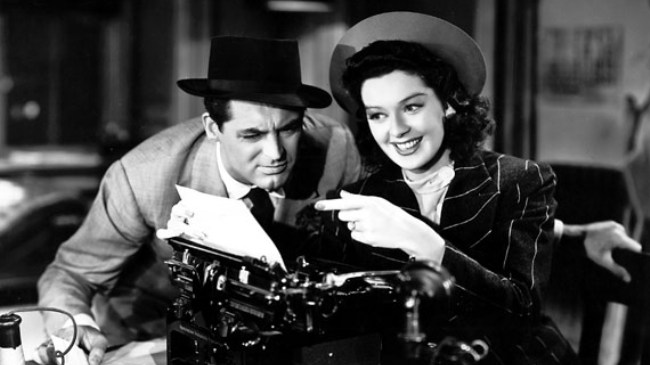
His Girl Friday (1940)
Why It Should've Been Terrible: It's only been nine years since the last screen version of The Front Page , and that was pretty good. So what's your big idea for justifying a remake? You're gonna make one of the heroes a woman? Yeah, good luck with that.
How It Became Great Instead: Howard Hawks knew what he was doing. By turning star reporter Hildy Johnson into editor Walter Burns' ex-wife, he injected fresh sexual tension and rom-com energy into an already fast-paced story, creating one of the zippiest screwball comedies ever made.
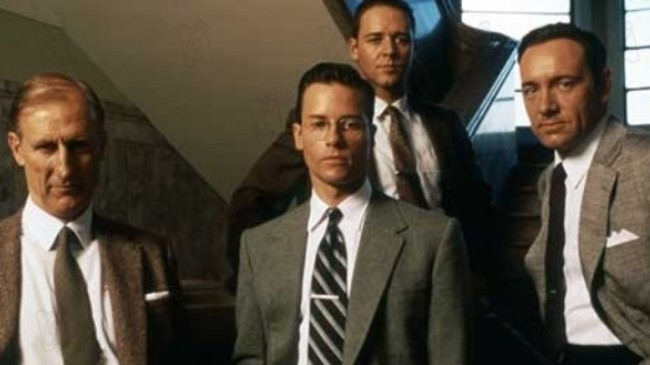
L.A. Confidential (1997)
Why It Should've Been Terrible: James Ellroy's source novel - doorstop-sized, teeming with subplots, ugly and visceral in its violence and the middle section in a trilogy - is never going to make a satisfying Hollywood movie.
How It Became Great Instead: Curtis Hanson and Brian Helgeland filleted the freshest meat from the book, ditched the leftovers and served with some side-dishes of their own. The result: a satisfying Hollywood movie.
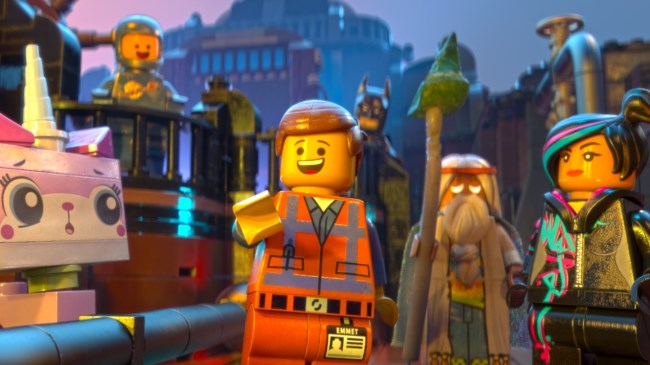
The LEGO Movie (2014)
Why It Should've Been Terrible: It's an advert! And, let's face it, LEGO isn't the same these days. When we were kids, you could make whatever you like. Now it's aimed at infantilised adults who want to follow the instructions and collect expensive Star Wars tie-in sets.
How It Became Great Instead: Trust us, Phil Lord and Chris Miller are on your wavelength. Go see the film, now.
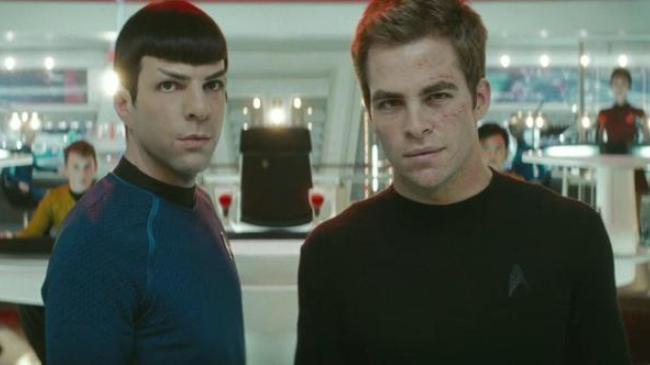
Star Trek (2009)
Why It Should've Been Terrible: Rebooting the original cast? Traitorous p'tahks ! It's an insult to Shatner, frankly.
How It Became Great Instead: J.J. Abrams succeeded by stripping away forty-odd years of mythology and refocussing attention on what made the original TV series fun. And he managed to do so in a way that let's the hardcore Trekkies get to keep their universe.
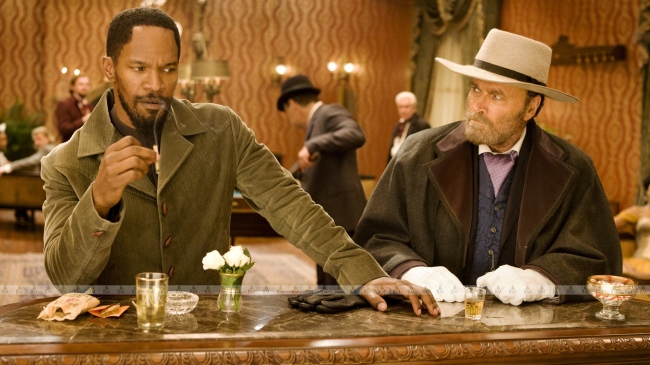
Django Unchained (2012)
Why It Should've Been Terrible: Quentin Tarantino isn't the first person you think of to helm a movie about the iniquities of slavery.
How It Became Great Instead: Tarantino's fearlessness became an asset - where a more timid and worthier film might have tiptoed around the subject and bored us into respect, this made us feel the outrage even as it hit the usual highs in terms of entertainment.
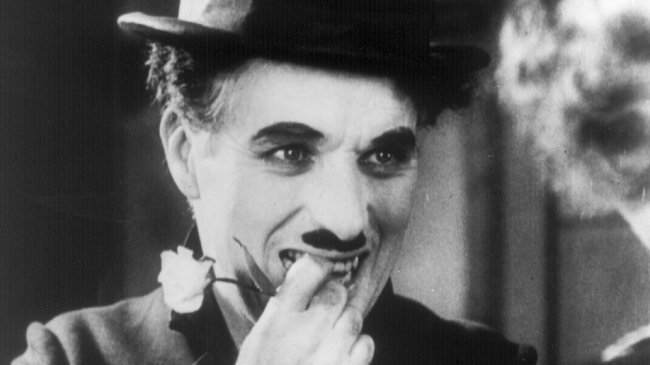
City Lights (1931)
Why It Should've Been Terrible: It's 1931, Charlie. Everybody's moved on from the silent era, yet here you are acting like it's 1921 with your lack of talking.
How It Became Great Instead: Great filmmaking is great filmmaking, period - and when Chaplin's mix of slapstick and sentiment is in such perfect balance, what need is there for anybody to say anything?
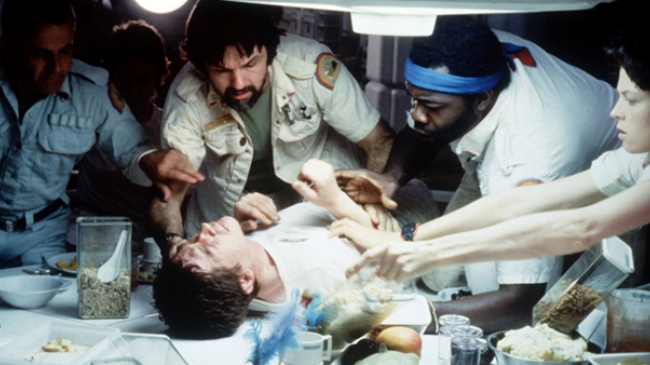
Alien (1979)
Why It Should've Been Terrible: Extra-terrestrial interloper picks off the crew one by one? Blimey, if you must pick a B-movie to rip off, shouldn't it be something better than It! The Terror From Beyond Space ?
How It Became Great Instead: By welding post- Star Wars sci-fi, 'haunted house' imagery and 1970s pessimism, Ridley Scott made a film of astounding style, terrifying action and plenty of substance, too.
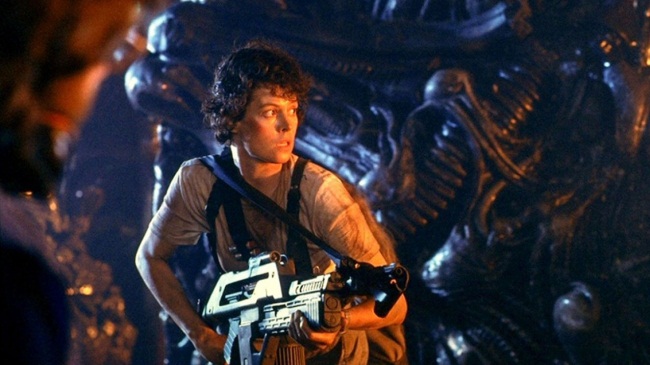
Aliens (1986)
Why It Should've Been Terrible: So Ripley's suddenly a gun-totin' warrior with a bunch of Marines all out to kick ass on a horde of xenomorphs? It's as if this guy Cameron never even watched the original.
How It Became Great Instead: The genius lies in the 's' on the end of the title - 's' for Sequel, obviously, but also 's' for eScalation, 's' for Switching genres and 's' for silencing the critics.
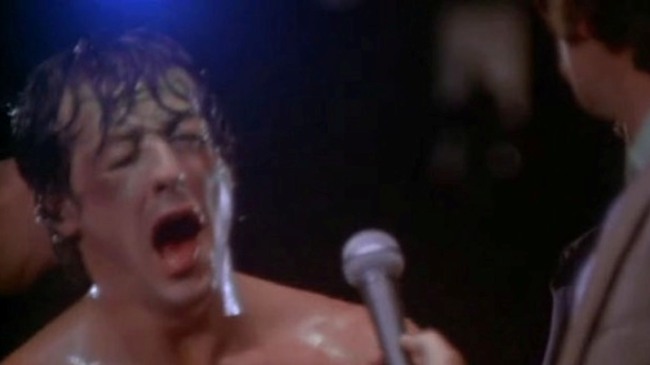
Rocky (1976)
Why It Should've Been Terrible: Who does this Sylvester Stallone guy think he is writing himself a film? Orson Welles? Let's face it, his story is pure fan-fiction about himself, he's just changed the profession from actor to boxer.
How It Became Great Instead: Stallone knew his limitations and ensured that Rocky remained the underdog throughout. It's easy to forget, but he maintained realism by not writing the expected 'Rocky wins' ending - in the first film, he's beaten but unbowed.
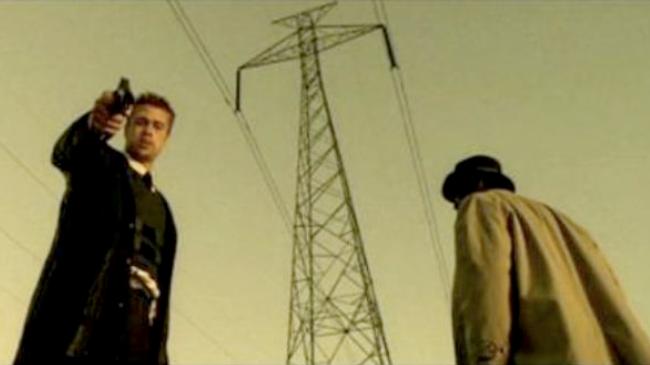
Se7en (1995)
Why It Should've Been Terrible: A serial killer who chooses his victims according to the Seven Deadly Sins? What next? Seven Wonders of the World? Seven dwarfs? C'mon, Hollywood, get your act together.
How It Became Great Instead: David Fincher approached the high concept with the utmost seriousness and respect, offering a deep, bleak vision of modern (im)morality and refusing to play by the cookie-cutter, three-act rules expected of a genre thriller.
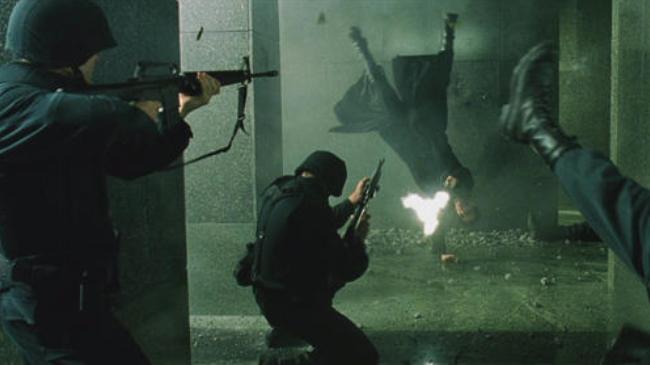
The Matrix (1999)
Why It Should've Been Terrible: Your big twist is that we're all living inside a computer? Virtual reality is so early-90s. Oh, and so is your leading man.
How It Became Great Instead: It's not what you show but the way that you show it. The Wachowskis manipulated screen imagery with such aplomb that suddenly everybody wanted to make films like we were all living inside a computer.
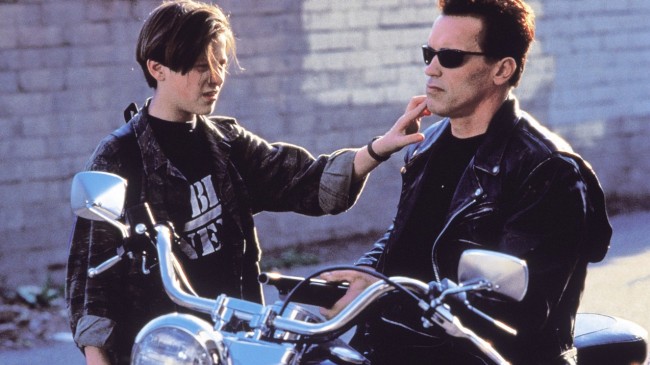
Terminator 2: Judgement Day (1991)
Why It Should've Been Terrible: Arnie's a good guy, the hero is a kid - jeez, Jim Cameron has gone soft.
How It Became Great Instead: By repeating the trick Cameron pulled off in Aliens by upgrading from mean, lean horror to juggernaut action. Now with added CGI 'wow' factor.
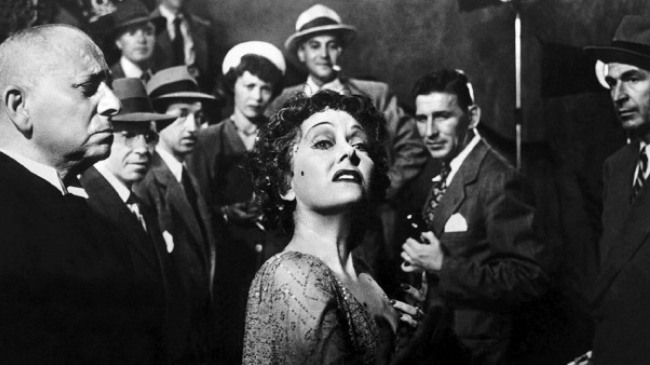
Sunset Blvd (1950)
Why It Should've Been Terrible: Consider the synopsis - the corpse of a washed-up screenwriter narrates the story of how he became the gigolo of a faded, ageing movie star after meeting her at the funeral of her beloved pet monkey.
How It Became Great Instead: Consider the subject - Hollywood. Billy Wilder exaggerated the cruel, cynical tales that occurred behind own doors, introduced it to the audience's insatiable need for scandal to gossip about, and lit the fuse.
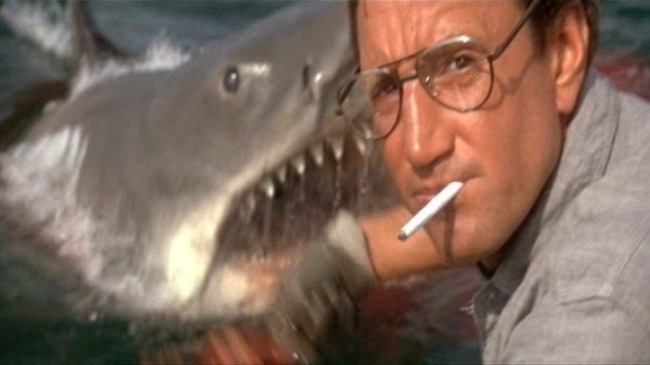
Jaws (1975)
Why It Should've Been Terrible: What's worse than watching another rubber-monster movie? Watching a rubber-monster movie that thinks it's Moby Dick .
How It Became Great Instead: The rubber monster couldn't cut it. Instead, Steven Spielberg replaced 'Bruce' with old-school Hitchcockian craft, creating a rollercoaster of suspense, exhilaration and wit that upped the B-movie into the A-movie.
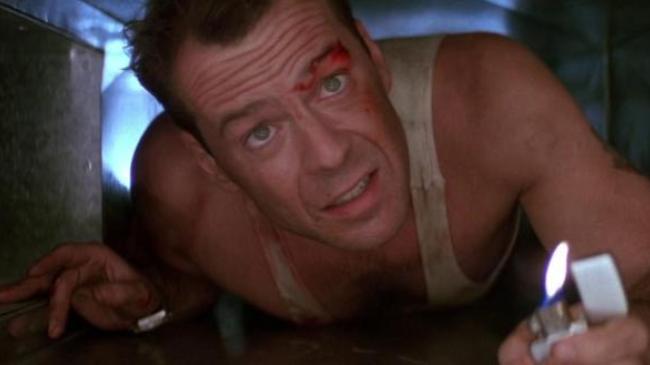
Die Hard (1988)
Why It Should've Been Terrible: An adaptation of the sequel to a novel that had been filmed with Frank Sinatra in the Sixties, only with Ol' Blue Eyes replaced by that wiseass from Moonlighting. Let's face it, nobody's gonna accept *that* as an action movie when they could be watching Sly or Arnie.
How It Became Great Instead: Precisely because Bruce Willis' Everyman charm forced a shift in emphasis away from monosyllabic grunting to dry wit. For once, here was an action movie which felt like its makers cared about storytelling.
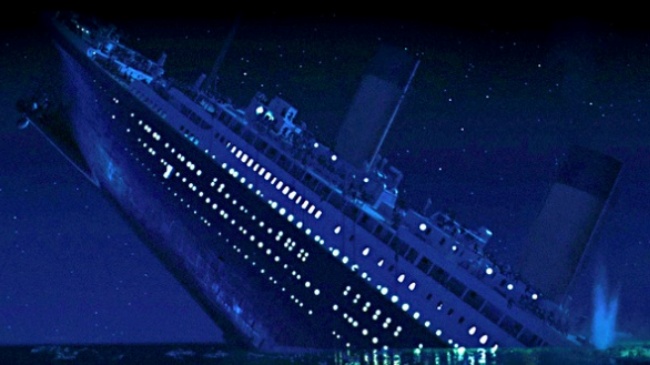
Titanic (1997)
Why It Should've Been Terrible: The more cash you spend on it, Jim, the bigger the splash when it sinks. It's not as if you have the element of surprise here; we all know how this one ends.
How It Became Great Instead: The money went where it needed to, on state-of-the-art FX that put the audience on board the stricken liner. But Cameron's cleverest move was to spend absolutely nothing on the script, creating a defiantly old-fashioned romance that united teenage girls and 'grey pounders' en route to a record-shattering box office.
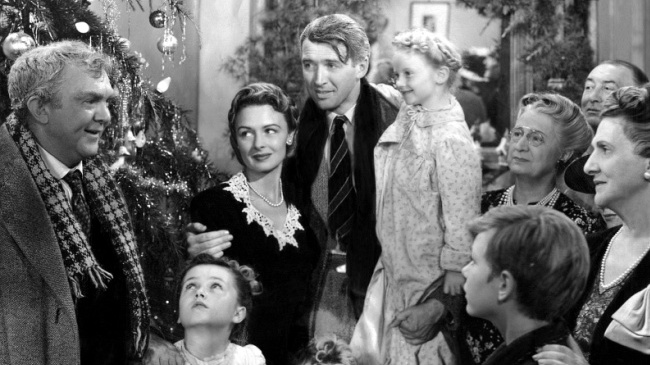
It's A Wonderful Life (1946)
Why It Should've Been Terrible: Suicidal man saved by angel who restores his faith in life by showing him how much he means to friends and family… No, there's too much mawkish sentiment, oh god make it stop!
How It Became Great Instead: A wonderful life? It's certainly a wonderful moment . But the film's greatness rests on earning its feel-good ending by balancing the highs with some devastating, painfully realised lows.
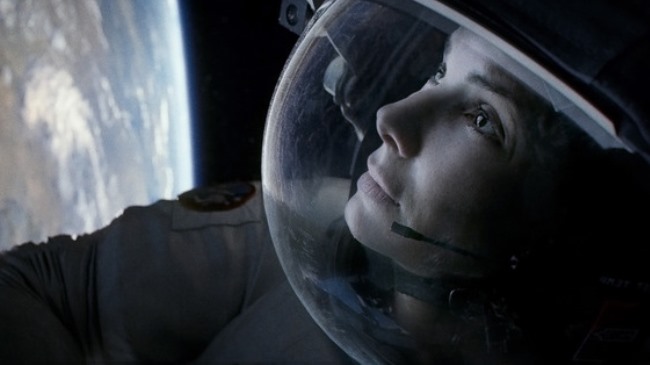
Gravity (2013)
Why It Should've Been Terrible: Rewind a few years and seemingly nobody can commit to Alfonso Cuaron's space thriller. Jolie? Nah. Portman? Can't commit. Downey Jr? Got something else to do. This one's headed back to Earth with a thud.
How It Became Great Instead: The longer the wait, the more time Cuaron had to perfect his ground-breaking FX. And in Clooney and Bullock the film had just the right blend of movie-star cool and Every(wo)man likeability to anchor the floating visuals emotionally.
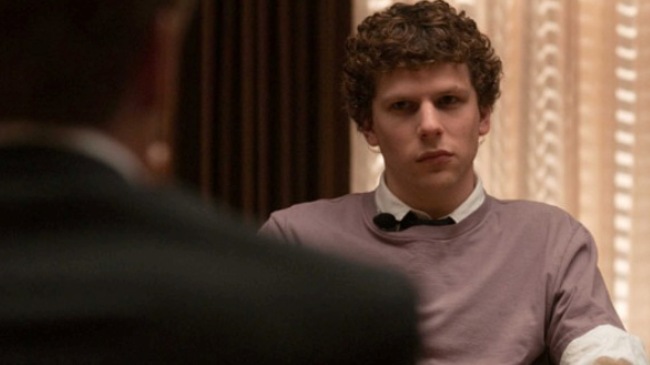
The Social Network (2010)
Why It Should've Been Terrible: A Facebook movie. Like, really? Won't it just be people staring at screens and occasionally poking each other?
How It Became Great Instead: David Fincher and Aaron Sorkin focussed on the creation of Facebook, asking timeless questions about creativity vs commerce, and framing a tussle over intellect property rights as a modern-day G(r)eek tragedy.
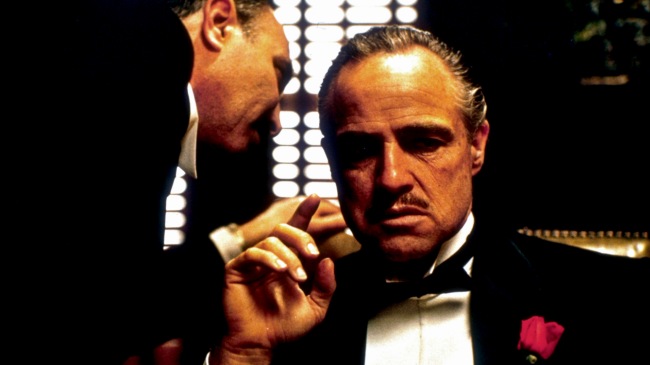
The Godfather (1972)
Why It Should've Been Terrible: Brando's past it, and we're not even sure this kid Pacino even has 'it'. And why is the director of photographer intent on keeping everything in the dark?
How It Became Great Instead: Coppola's gangster epic defined not only its era but cast an unrivalled shadow over American filmmaking for decades to come. Oh, and 'it' is always available - from a "has-been" to a newcomer - if you know how to coax it out.
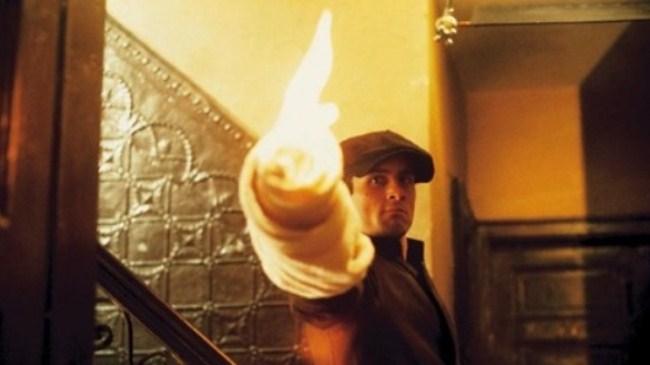
The Godfather Part 2 (1974)
Why It Should've Been Terrible: What's the point of making another Godfather ? We already know Michael Corleone's a bad'un, and what's this crazy notion about letting this kid De Niro try and play Brando?
How It Became Great Instead: Coppola's ambition created one of the most novelistic of movies, and the flashbacks helped to illuminate the increasing gloom that surrounded Michael. Everybody from Marvel to HBO has adopted its long-form approach to screen storytelling.
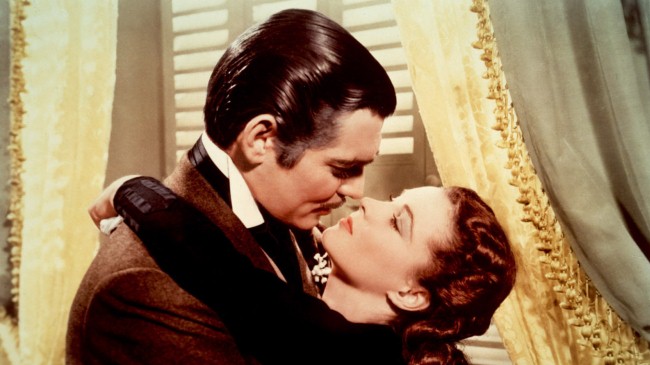
Gone With The Wind (1939)
Why It Should've Been Terrible: An independent producer (David O. Selznick) outbids the studios to secure the rights to Margaret Mitchell's Civil War romance, and then spends even more as he takes years assembling the project. And the guy clearly can't find anybody to play Scarlett O'Hara; he's already auditioned every actress in Hollywood.
How It Became Great Instead: The money - and the time - were spent wisely; this is an epic with depth to match its breadth. Selznick trusted to his instincts by casting relative unknown Vivienne Leigh and stayed in charge even as a conveyor belt of directors passed through.
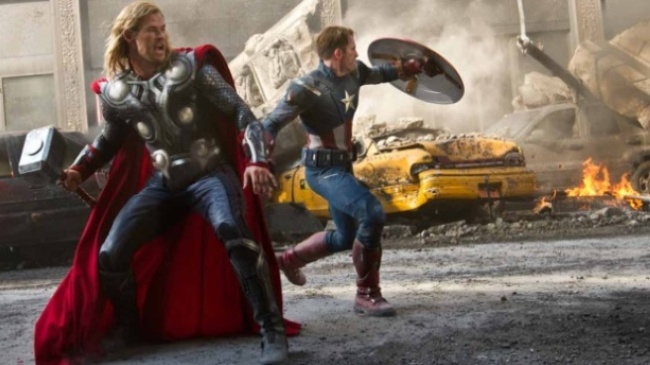
Marvel Avengers Assemble (2012)
Why It Should've Been Terrible: Impossible! It'll never work! All that hard work establishing these guys in their own worlds and now you're gonna chuck them all into a blender and turn them into cinematic superhero sludge.
How It Became Great Instead: Kudos to Marvel: they've thought long and hard about this. The fact that these guys shouldn't go together was the entire point, and the gig was given to Joss Whedon, a past master at finding the common heart in apparently bickering gangs.
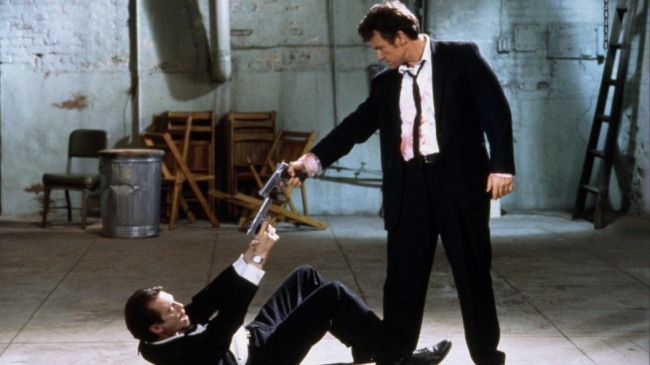
Reservoir Dogs (1992)
Why It Should've Been Terrible: "Reserv-what now?" "It's a heist movie." "Oh, cool, I love seeing a good heist." "They don't show the heist." "Er, right, so what do they show?" "They sit around talking about Madonna, mostly."
How It Became Great Instead: Turns out there was a heist, after all. We were just too busy laughing at Quentin Tarantino's talk to notice he'd broken into the movies and changed all the rules.
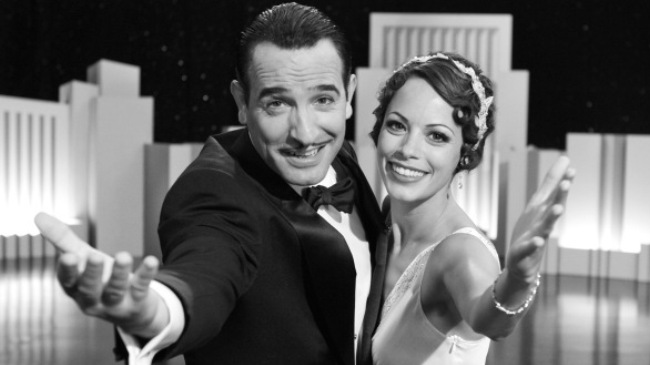
The Artist (2011)
Why It Should've Been Terrible: Why is nobody speaking? Wait…what…it's silent? Didn't they do away with that years ago?
How It Became Great Instead: It's as if Michel Hazanavicius went back in time and bottled the essence of the 1920s. With Dujardin's charm, Bejo's pep and Uggie's doglike genius, the (laughing, crying, gasping) audience brought all of the sound instead.
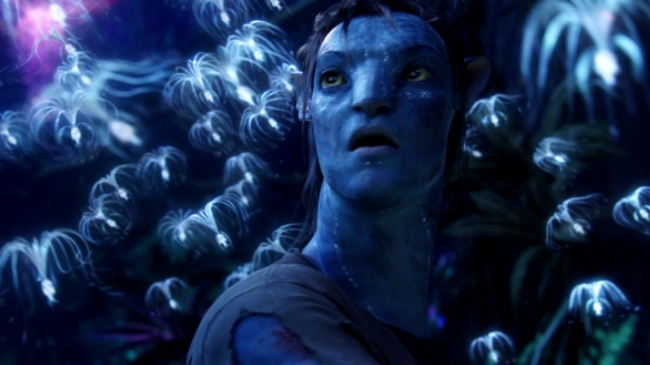
Avatar (1999)
Why It Should've Been Terrible: It's Ferngully with Smurfs.
How It Became Great Instead: In short, world-building. James Cameron might have hailed this as a triumph for 3D, but that kind of immersion still relied on giving a shit about what we were watching, otherwise the Clash Of The Titans remake would have been a bigger hit.
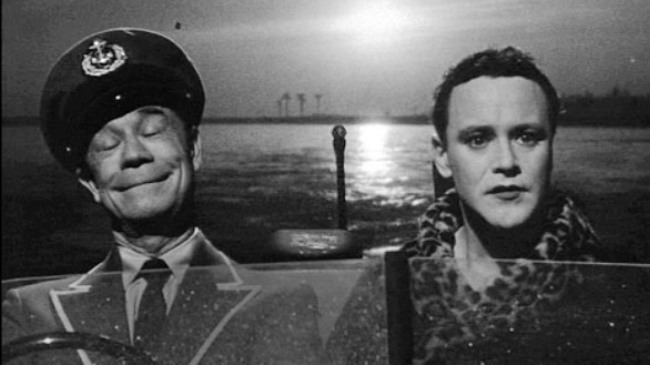
Some Like It Hot (1959)
Why It Should've Been Terrible: By rights, Billy Wilder's comedy should have been an unholy alliance of bad taste (the story is sparked by a real-life massacre) and lowbrow laughs (dragged up jazz musicians trying to pull Marilyn Monroe).
How It Became Great Instead: Wilder didn't care what people thought. This is brazenly provocative stuff, all the funnier because the threat is genuine and the gender confusion played (ahem) straight.
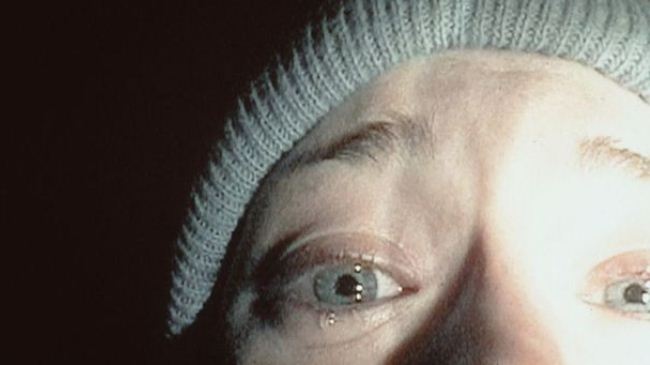
The Blair Witch Project (1999)
Why It Should've Been Terrible: You simply don't send your actors into the woods with only a few rudimentary lessons in how to use a camera, and expect them to shoot a movie. Don't they teach anything in Filmmaking 101 these days?
How It Became Great Instead: The frisson of semi-amateur anxiety in the shaky-cam footage gave horror a new sense of realism that chimed with dotcom culture and revolutionised low-budget filmmaking.
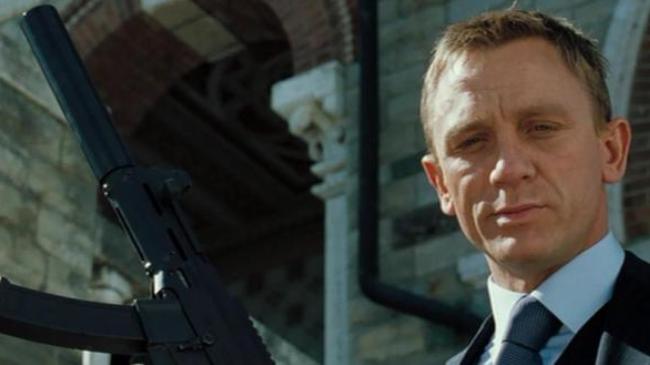
Casino Royale (2006)
Why It Should've Been Terrible: He's not Bond, he's blonde! Only kidding - but regardless of the star's hair colour, the decision to make a serious, realistic(ish) 007 movie is like a dagger in the heart of anybody who ever watched Roger Moore on a Bank Holiday Monday.
How It Became Great Instead: Jason Bourne? Pah! Jack Bauer? Tsk! There's only one JB in the action world and Daniel Craig restored Bond's mojo by being faster, fiercer and - yes - funnier than his contemporaries.
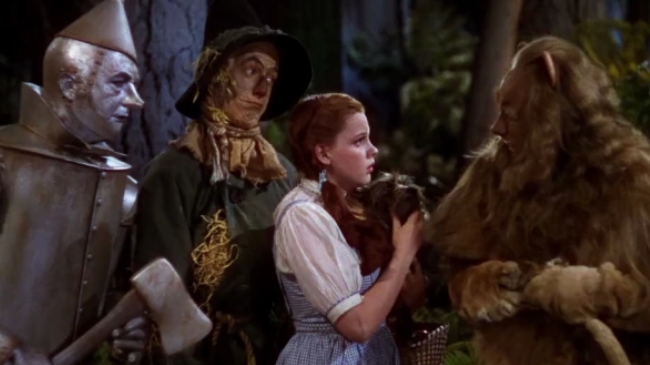
The Wizard Of Oz (1939)
Why It Should've Been Terrible: Realistically, any film whose cast requires a scarecrow, a tin man, a lion, flying monkeys and Munchkins, and whose sets include a flying house and a road made out of yellow bricks, should have been binned before a frame of footage was shot.
How It Became Great Instead: Who wants realism? Here's the classic case of Hollywood throwing everything at the screen until it works, even if that meant hospitalising original Tin Man, Buddy Ebsen, with lung-coating aluminium make-up.
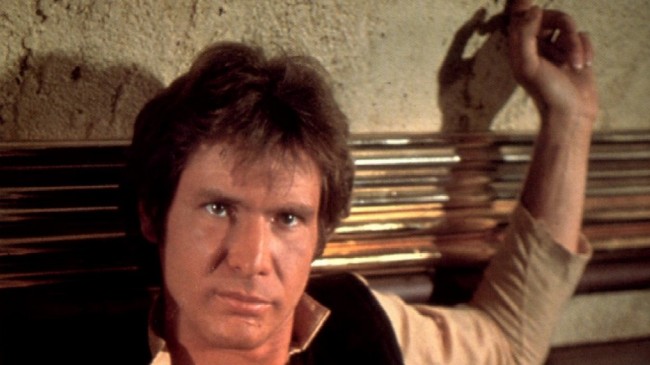
Star Wars (1977)
Why It Should've Been Terrible: Confidential memo, dated 1976. "Lucas has lost his mind. His cast includes a dustbin and a giant dog, he's making Alec Guinness do a sword fight without a sword and the cast are openly mocking the dialogue. We're gonna lose millions on this."
How It Became Great Instead: Lucas hadn't lost his mind at all; instead, he'd pinpointed what was in the minds of every kid who ever stepped into a cinema and figured out how to bring it to life.
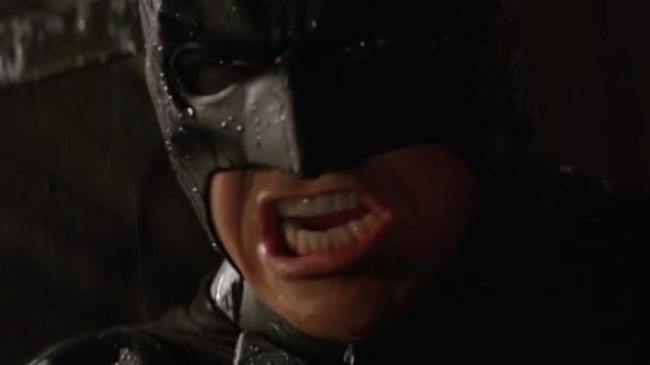
Batman Begins (2005)
Why It Should've Been Terrible: Begins? You're not fooling anybody. We saw Batman And Robin . Batman has already ended.
How It Became Great Instead: By totalling ignoring the Burton/Schumacher years (and, better still, ditching Robin) Christopher Nolan and Christian Bale rebuilt the Bat from the ground up, not only creating the definitive blockbuster trilogy of the modern age but providing a durable template for other franchises with an eye on rebooting.
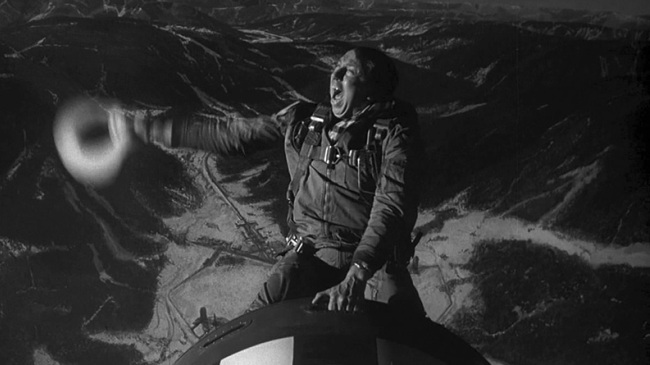
Dr Strangelove (1964)
Why It Should've Been Terrible: "We're all terrified by the prospect of nuclear war. Stanley, cheer us up with a comedy!" "Comedy, eh? I've got just the subject for that."
How It Became Great Instead: Nervous giggles turned into full-blown hysterical guffaws as everybody realised that Kubrick was right. In a situation this crazy, satirical laughter is the only response.
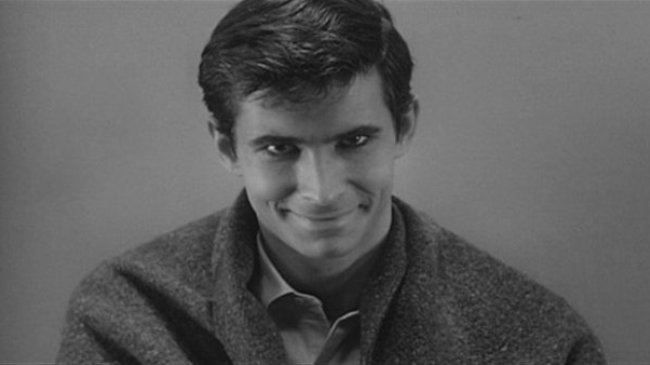
Psycho (1960)
Why It Should've Been Terrible: Man turns up at cinema halfway through a screening and is told:
"I'm sorry, Alfred Hitchcock says you can't come in. It'll spoil the surprise."
"What surprise? Films are all the same. It's not like he's going to kill off the main character halfway through or something."
How It Became Great Instead: By ripping up the rulebook, Hitchcock changed movies for ever. Never mind taking a shower, Psycho made us wary about stepping into a cinema.
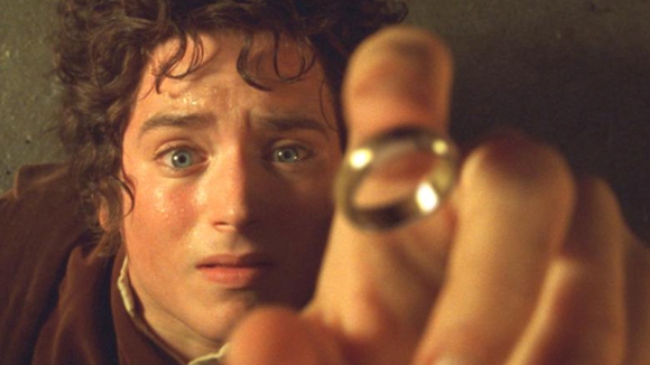
The Lord Of The Rings (2001-3)
Why It Should've Been Terrible: Even if hobbitses and orcs don't float your boat, the sheer insanity of trying to shoot three films back-to-back will do for this one. Ralph Bakshi couldn't finish the thing, and he had the advantage of not working in live action.
How It Became Great Instead: The greatest gamble in modern cinema paid off, chiefly because Peter Jackson had precisely the right combination of love for the material, hard-earned craft and distance from Hollywood to do it his way.


